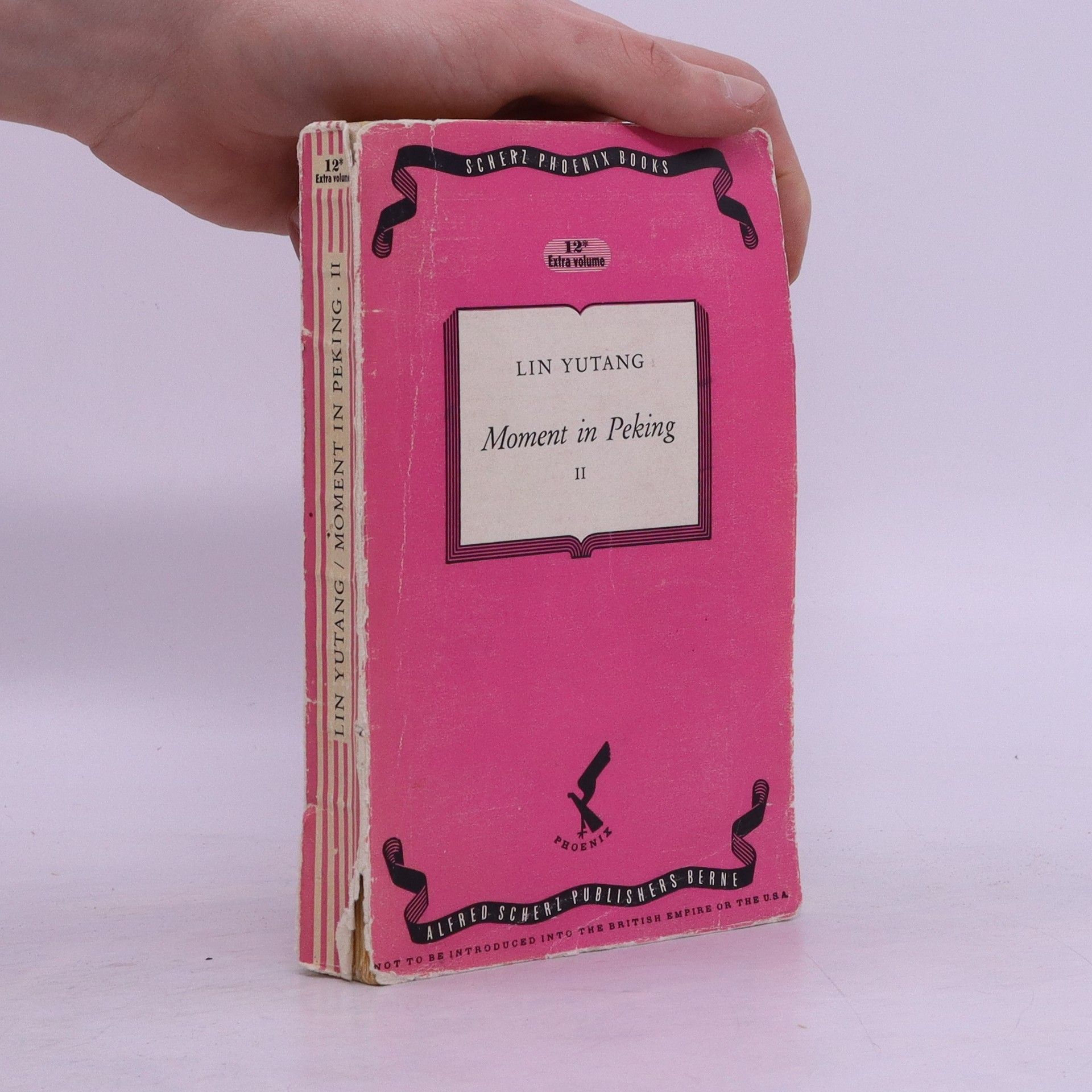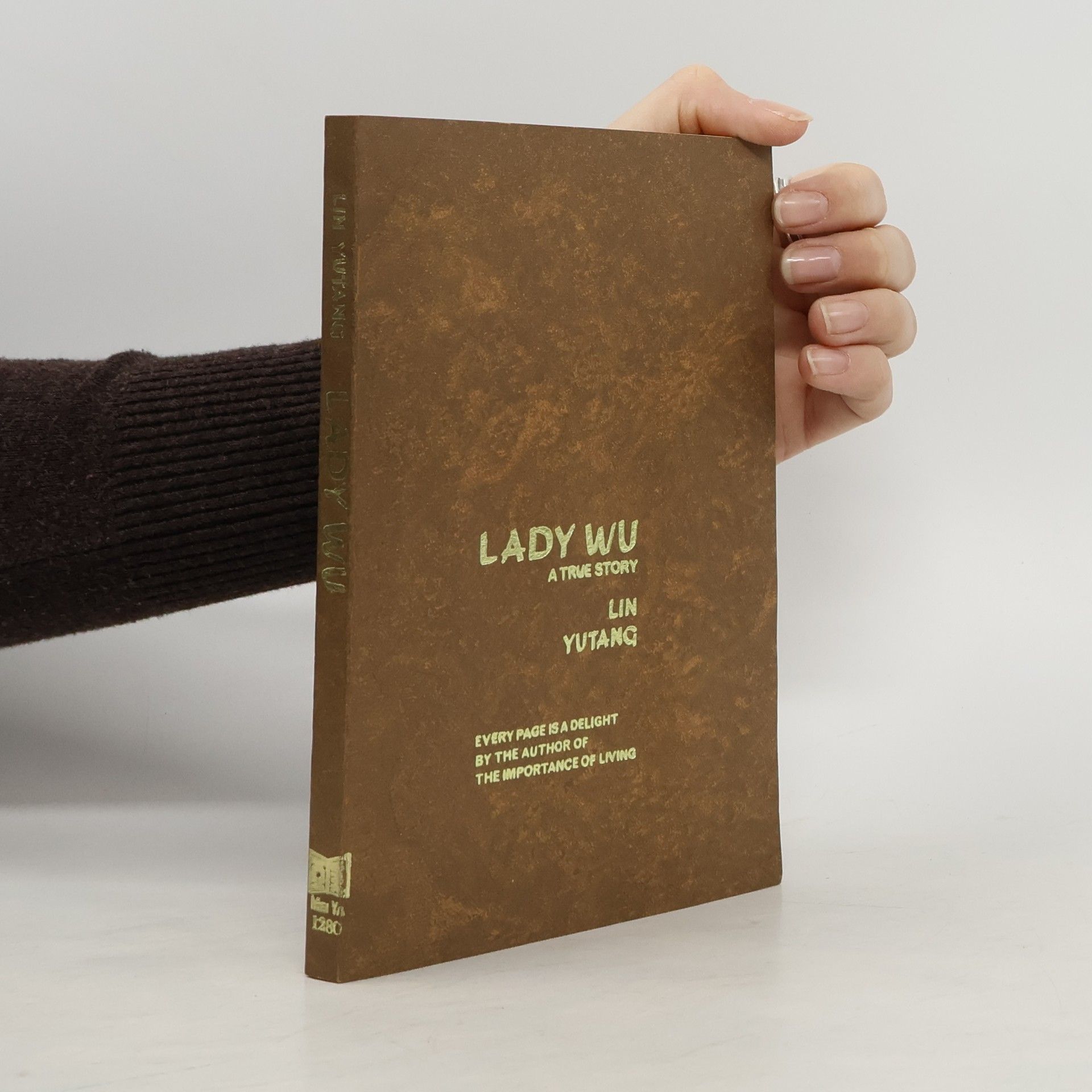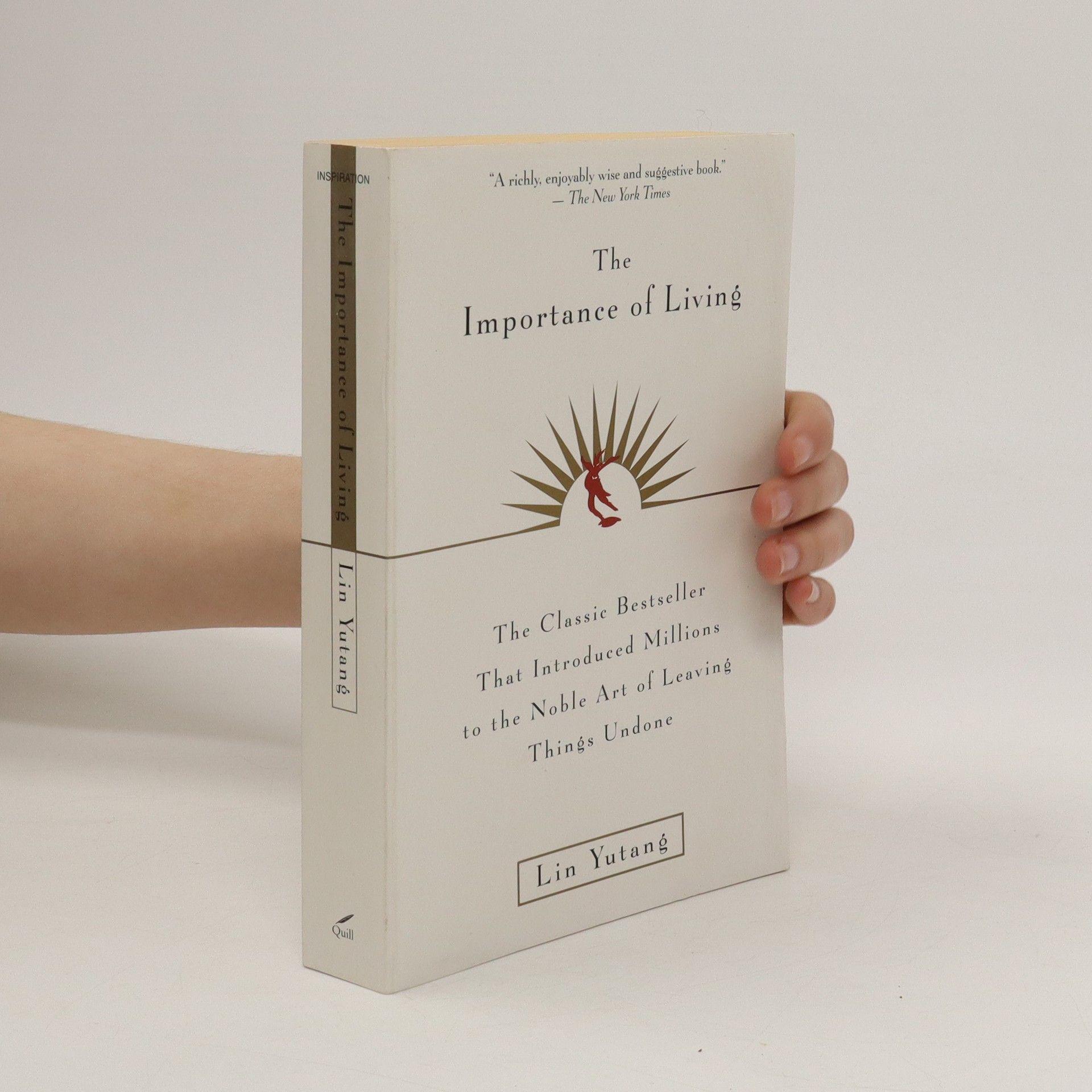美国的智慧. Měiguó de zhìhuì. The Wisdom of America
- 408 pages
- 15 hours of reading
本书是一本通俗哲学著作,内容涉及社会生活的方方面面:生活、生命、情感、自由、幸福、自然、宗教、幽默与讽刺、爱情与婚姻、战争与和平等等。
A prolific writer in both Chinese and English, this author founded several Chinese magazines in the 1930s dedicated to social satire and Western-style journalism. His work is characterized by a deep engagement with Chinese culture and history, presented with a unique sensibility to Western readers. He also excelled at literary translation, making Chinese masterpieces accessible to a broader audience. His writings often explore themes of identity and cultural encounters.







本书是一本通俗哲学著作,内容涉及社会生活的方方面面:生活、生命、情感、自由、幸福、自然、宗教、幽默与讽刺、爱情与婚姻、战争与和平等等。
The Importance of Living is a wry, witty antidote to the dizzying pace of the modern world. Lin Yutang's prescription is the classic Chinese philosophy of life: Revere inaction as much as action, invoke humor to maintain a healthy attitude, and never forget that there will always be plenty of fools around who are willing-indeed, eager-to be busy, to make themselves useful, and to exercise power while you bask in the simple joy of existence.At a time when we're overwhelmed with wake-up calls, here is a refreshing, playful reminder to savor life's simple pleasures.
A notable aspect of this work is its bold critique of Western racism and imperialism, diverging from Lin Yutang's earlier writings. Published during World War II, the book reflects urgent themes of its time, urging readers to confront pressing global issues with clarity and simplicity. Yutang emphasizes the necessity of honest discourse in the face of impending conflict, making this a significant contribution to wartime literature and a call for critical reflection on societal values.
本书所记载的是一个诗人、画家与老百姓之挚友苏东坡的事迹,按时间顺序分为青年至青少年时期、壮年期、成熟、流放岁月四卷。